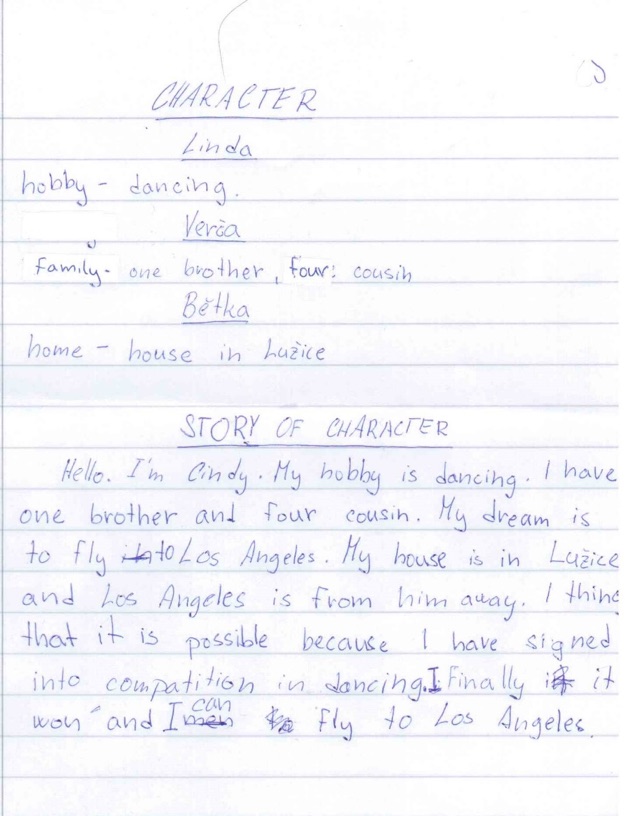Relatable Group Writing
Mgr. Žaneta Voldánová
The Challenge of Making Writing in English less Challenging
Writing is one of the four essential skills every language learner needs to work on in order to be capable of successful communication in the language. To make the learning process easier and as efficient as possible, it is desirable to incorporate writing into teaching young learners and to pay proper attention to it. Nevertheless, in reality, writing is often neglected due to its being considered time-consuming, boring and difficult, both by students and teachers. However, there are many benefits of teaching writing to young learners, such as
As a person who has always loved writing and as a teacher who wants to help students find their way to liking it, or at least disliking it less than they do, I have given a lot of thought to what could possibly improve their attitude to writing. With the theoretical support of reference sources and practical research carried out in the first four grades of the eight-year programme at a grammar school (corresponding with the lower secondary school), I elaborated on my assumptions that from the teachers’ point of view, writing was too time-consuming and difficult to teach, and that for students, it was boring and demanding, especially when done individually.
What I had the feeling would help significantly was turning writing into a group task, which would, moreover, include something students could relate to. This led to relatable group writing. I have designed my own activity, in which each member of the group provides some personal information about themselves, such as their hobbies, their family, home
I piloted this activity in eight different English classes and was mostly very pleased with the results. It is crucial to
The importance of the attitude of students to writing should be taken into consideration as well. During my research, not only did I observe their work and evaluate their final texts, I prepared questions about writing in English for them and let them answer them by raising their hand with their eyes closed so as to avoid peer pressure. Before the activity, they were asked four questions connected with their general relationship to writing. After they finished writing, there were asked another six questions, concerning how they felt about the relatable group writing activity. This feedback was extremely valuable for proving that generally, my assumptions were correct, for
Of course, the research could not be one-sided, just like the teaching and learning process is never one-sided, so I also created a questionnaire for the teachers of the students I worked with, basically focused on their attitude to teaching writing and to group work. Most of them admitted that writing was both hard for them to teach – especially since it takes up a lot of time – and for their students to learn. Nonetheless, with the minority of them considering creative writing a waste of time and the majority of them being open to group work, relatable group writing definitely stands a chance of ending up in some future lesson plans.
It would be daring to claim that the method I have suggested is going to awake a whole generation of little Shakespeares and Poes, but the main goal was to make writing less challenging and more enjoyable, and relatable group writing proved capable of fulfilling this requirement, which is why I would recommend it to teachers. Naturally, the content and the specific concept should always be adjusted to the needs of a particular group, but the main idea – writing in a group on a topic that is relatable for all its members, which leads to development not only of their writing skills but also of their ability to communicate and cooperate – is applicable to a range of age groups, levels etc. and is definitely worth introducing in language lessons.
Just as a matter of interest, here is a summary of the interviews with students in all classes and examples of final texts written by three groups.
| Total number of students | 108 |
| Do you like writing in English? | 33 |
| Do you prefer working individually? | 40 |
| Do you prefer working in a group? | 57 |
| Is writing in English difficult? | 29 |
| Was writing in the group easier than writing individually? | 67 |
| Was writing in the group more fun than writing individually? | 84 |
| Did you have a leader? | 35 |
| Do you like your story? | 64 |
| Did you learn something new or interesting about your classmates? | 25 |
| Would you like to do this activity again? | 85 |
